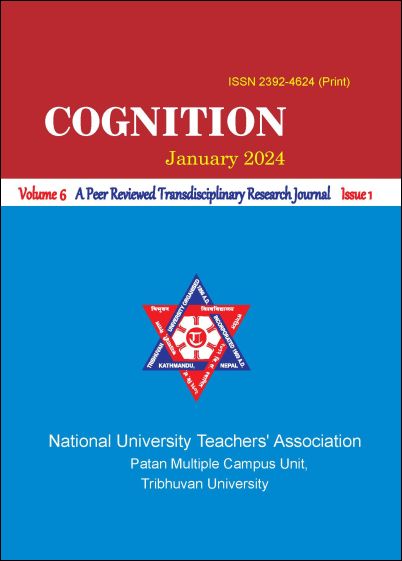A Cross-Sectional Study of Gender Politics in Nepal
DOI:
https://doi.org/10.3126/cognition.v6i1.64450Keywords:
Gender, Sexuality, Patriarchy, EthnicityAbstract
This research paper examines the different dynamics of intersectionality in the political and cultural set-up of Nepal, where people of different religions, ideologies and ethnicities have lived for centuries. The paper tried to argue that variables such as class, gender, ethnicity, religion, region, disability and even caste influence the political and social status of Nepal. To study the real problems of women, all those parts that directly or indirectly affect their position must be underlined in the research paper. The article uses Crenshaw's theory of intersectionality to examine the dominant variables of patriarchy. The article focuses on the problems of Madheshi, Muslim and Dalit women who have always been marginalized in the political and social framework of the country. The primary finding of the study is that women belonging to marginalized class, caste, ethnicity, disability, religion and region are more oppressed in the country than women belonging to other categories. Because intersectionality is a burning approach to analyzing the position of women in patriarchy, theorists and researchers whose perspectives and ideas matter are brought into the discussion.




